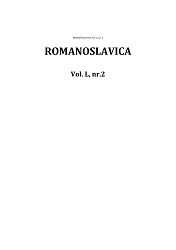Influențe budiste în romanul lui Viktor Pelevin „Mitraliera de lut”
Buddhist influences in Viktor Pelevin's novel "The Clay Machinegun"
Author(s): Florentina MarinSubject(s): Novel, Russian Literature, Theory of Literature, Sociology of Literature
Published by: Editura Universităţii din Bucureşti
Keywords: Buddhism; void; illusion; reincarnation; postmodernism;
Summary/Abstract: Viktor Pelevin is one of the most prolific writers in Russian literature, belonging to the postmodernist movement. Due to his unique style and originality in combining mythological elements from different cultures, Pelevin has been considered an unusual author, able to deconstruct previously established literary and cultural norms, so that the very next moment he could revive them or create new ones. His interest for Buddhism materializes itself in a series of novels and short stories which discuss different mythological themes. In the novel The Clay Machinegun, the author debates three main themes – life as an illusion, the theme of the void and the theme of reincarnation. The following article analyzes these elements from a postmodernist perspective, proving, thus, that the illusionary state of life reflects the subjective mental representations of reality, while the void is used by Pelevin to provide philosophical freedom to the individual. Also, through reincarnation, the author reveals the continuous recycle of human types and behaviors, noticed throughout history.
Journal: Romanoslavica
- Issue Year: L/2014
- Issue No: 2
- Page Range: 185-194
- Page Count: 10
- Language: Romanian

